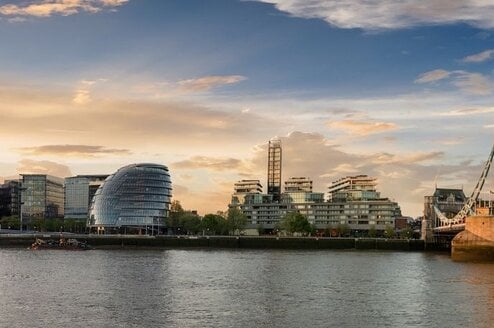Gap Year Programs in the United Kingdom
Gap years are often people’s first experience of long-term solo travel, which is exactly what makes the United Kingdom such a great choice. The culture is familiar enough not to be overwhelming, there is no language barrier, and the country’s small size and good travel infrastructure make it super easy to explore.
However, the UK is far more than just convenient. After all, there's a reason this tiny country tops bucket lists for culture buffs, history nerds, music fans, and literature lovers around the globe. With a year to explore (and the rest of Europe just across the narrow channel), imagine all you could get up to.
The UK’s compact size means you can pack in a lot into a gap year. You can enjoy the buzzing culture of its major cities and the charming quiet of its historic towns, hike its dramatic peaks, take in its rugged coastlines, and get to know all four countries that make up the United Kingdom.
Cultural travel
The UK is known worldwide for its many cultural landmarks, but a gap year allows you to go beyond the tourist highlights. You can, for example, explore the many awesome cities that get less attention than London, like Manchester, Liverpool, Edinburgh, Glasgow, Belfast, or Cardiff.
If you’re not a big city person, you’ll love smaller, quaint towns full of history, like York, Oxford, Cambridge, and Bath. Want to get away from it all? Places like the Lake District, the Scottish Highlands, and the Irish coast are a magnet for nature lovers.
Intern
Assuming you can get the right visa, there are almost limitless opportunities for work and internships. The lack of a language barrier makes this especially easy. Common gap year jobs include working in a bar or hostel, seasonal farm work, and becoming an au pair.
Volunteer
Every major city in the UK will be full of charities covering almost every social issue imaginable. Whether you want to protect the environment, support refugees, work with the homeless, cook meals for underprivileged groups, or just help out at a local community center, volunteering opportunities abound.
Visas
US citizens don't need to apply for a visa in advance to enter the UK, but that’s only for stays of six months or less. Some people try to exit the country for a while and then re-enter for another six-month stay, but this is not recommended since immigration officials are likely to suspect your intentions.
If you want to stay for a full year without working, you will have to apply for a long-term standard visitor visa that allows you to stay for two years.
Citizens of Australia, Canada, and New Zealand can apply for the Youth Mobility Scheme. This visa lasts up to two years and allows you to work for a maximum of 12 months out of the 24. This costs £190.
For US citizens, getting a work permit is a bit more complicated since there are different options with different rules. With very few exceptions, these are primarily offered to people who have job offers within the UK.
The UK is a small country with good transport infrastructure, so getting around tends to be straightforward. Your biggest challenge is likely to be managing your budget and finding flexible accommodation.
Cost of Living in the United Kingdom
The cost of living in London is significantly higher than in the rest of the country -- so much, so that minimum wage is different there. Rent in other major cities like Manchester, Glasgow, or Belfast can be almost half of London ones.
The difference in day-to-day expenses is less dramatic. Across the country, a casual restaurant meal will knock you back between $15 and $20, a public transport ticket will be about $3 for central trips, and a pint of beer will range between $4 and $8.
Housing
It isn't difficult to find flatshares in most of the big cities across the UK -- good websites to check include Gumtree and Spareroom. While it is possible to live alone in a studio or one-bedroom, rent for these tends to be pretty expensive, especially in London
If you’re planning on moving around a lot, you might be better off using holiday rental websites like Airbnb and negotiating better rates for longer stays. Watch out for price surges during peak season in July and August.

















